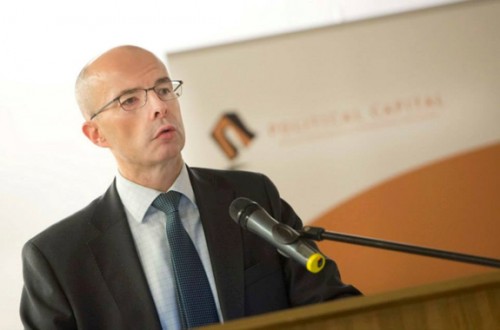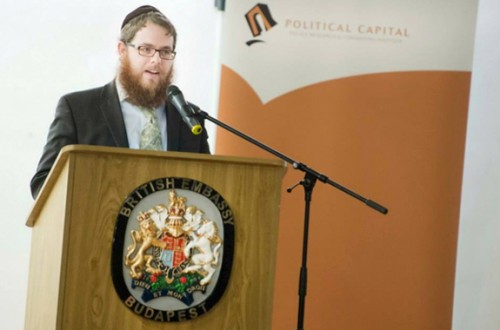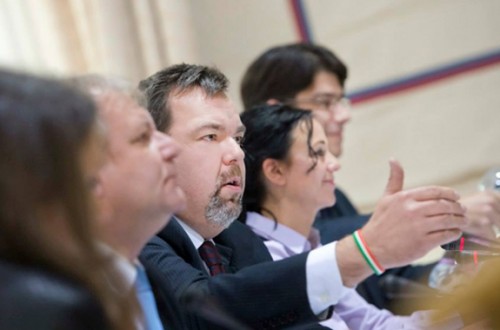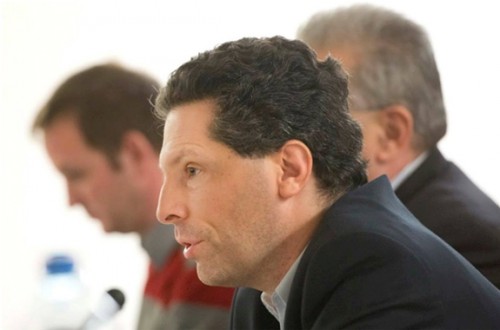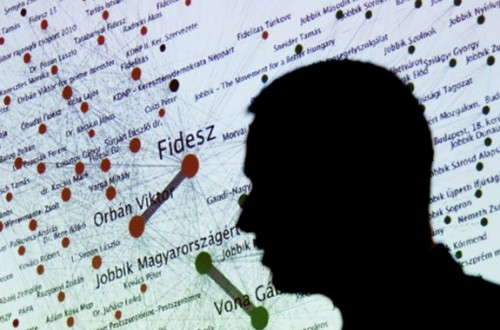13th December 2013 Budapest, Hungary
A successful experiment
Guest blog by Peter Krekó, Director of Political Capital Institute and co-chair of EU RAN PREVENT.
Two weeks ago, the Embassy of the UK hosted a conference organised by Political Capital and Szombat on scapegoating ideologies, anti-Semitism, conspiracy theories and the counter-narratives. As one of the organisers, I’ll try to resist the temptation to praise the event while trying to share some experiences about it.
The topics of the conference are hot topics in every sense: there are practically no issues in Hungary that are more in the centre of political debates and controversies inside and about Hungary than extremism and anti-Semitism. Hungary has one of the strongest far-right parties in the parliament, the Guards and their successors are still active, and anti-Semitism have been on the rise in the last few years. The left and the right are playing a blame game on who is responsible for the radicalisation, while the international media is steadily reporting on the Hungarian right-wing extremism – sometimes in a highly exaggerating manner. And the debates are harsh not just around the diagnosis but the therapy as well.
Questions such as should the state ban hate speech and extremist organisations, or how the police should step up against manifestations of extremism provoke harsh debates among representatives of the same political sides as well.
The conference was a huge experiment – it brought together almost 40 speakers from six countries, with different intellectual backgrounds (academics, politicians, think-thanks, artists, journalists, NGO representatives) and different political backgrounds to stimulate discussions on many issues: the role of social media in spreading extremist ideology, the dilemma over repressive vs. liberal legislative and law enforcement responses, the role of the education, and the role of the media among others.
As Ambassador Knott mentioned in his opening remarks, every European country faces the challenges of extremism, anti-Semitism and intolerance. The only question is how much effort they make to tackle this challenge.
The idea behind the conference was to talk about difficult and divisive issues freely and without taboos while acknowledging that all the participants of the conference stand on the same platform in a crucial issue: they all want to live in a less hateful society. And even if there were some debates over the two-day conference, the huge interest (there were more than 150 participants), the feedback of the participants and the abundance of great ideas that the conference brought to the table were a proof that this approach worked fruitfully.
The British Embassy was the best possible place for this event for at least three reasons: Firstly, we at Political Capital think that the British model of treating extremism that puts more emphasis on prevention, education and community work than banning and repression is exemplary – even if not all the participants of the conference would agree. Secondly, the British culture of debate (being open to opposing ideas) provided a perfect environment for good arguments.
Thirdly, British governments, while obviously facing problems of growing extremism, are exemplary in being conscious about inventing policy responses in prevention of violent extremism and deradicalisation – as, for example, the latest taskforce report reveals.
As Churchill noted: “A fanatic is one who can’t change his mind and won’t change the subject”. Speakers and participants of the conference were all fanatics in the second sense: we were focusing on the subject of the conference for two days. This was scapegoating ideologies and (anti-Semitic and anti-Israeli) conspiracy theories. Although we hope that we are not that fanatic in the first sense. It was not just empty debates so they could contribute to the persuasion of even the speakers about the importance of these issues.
The conference was hosted by the British Embassy in Budapest, and supported by the International Holocaust Remembrance Alliance, the Open Society Foundations and the European Jewish Fund.
The views and opinions expressed in this article are those of the authors and do not necessarily reflect the official policy or position of the British government.
